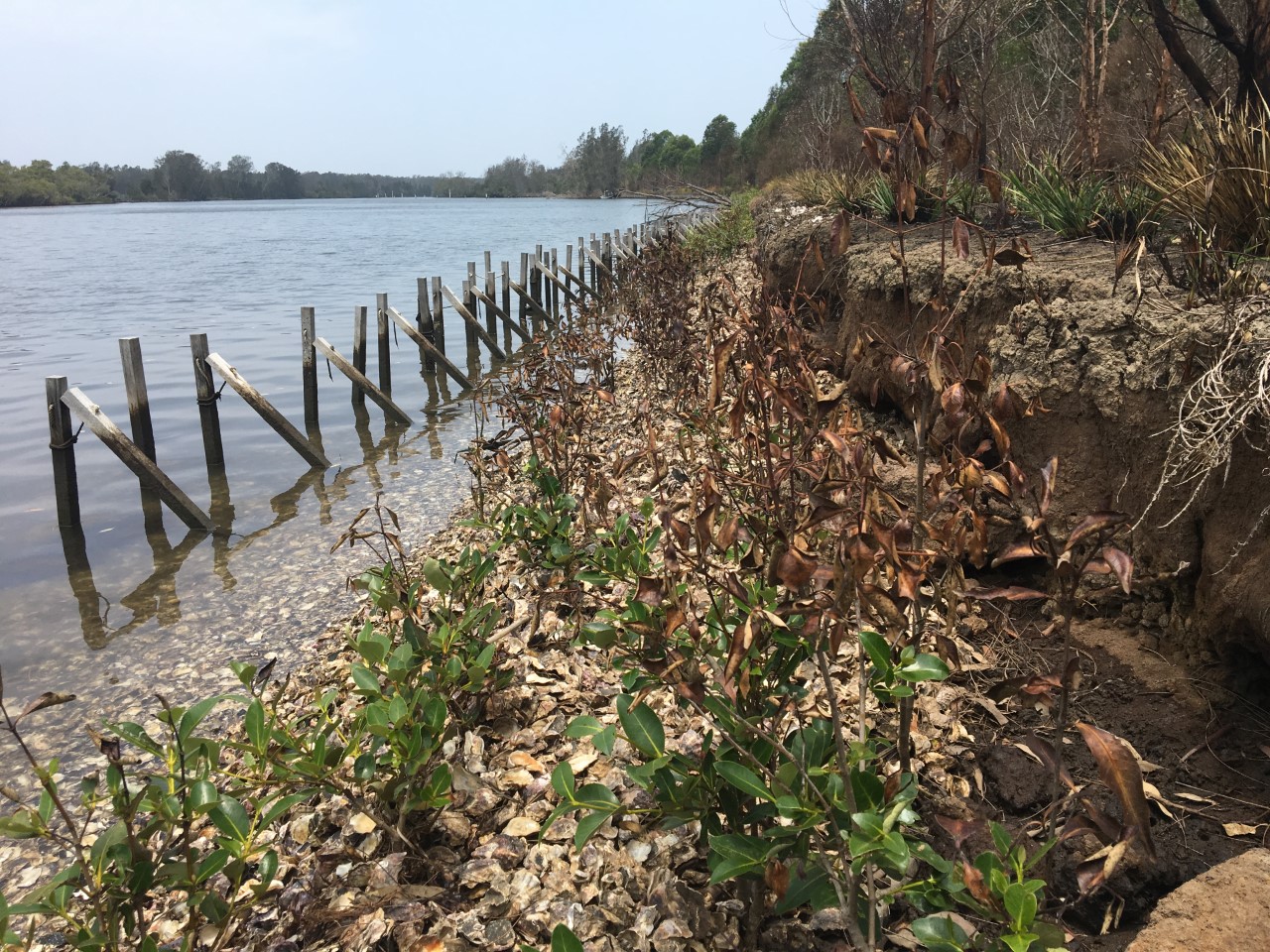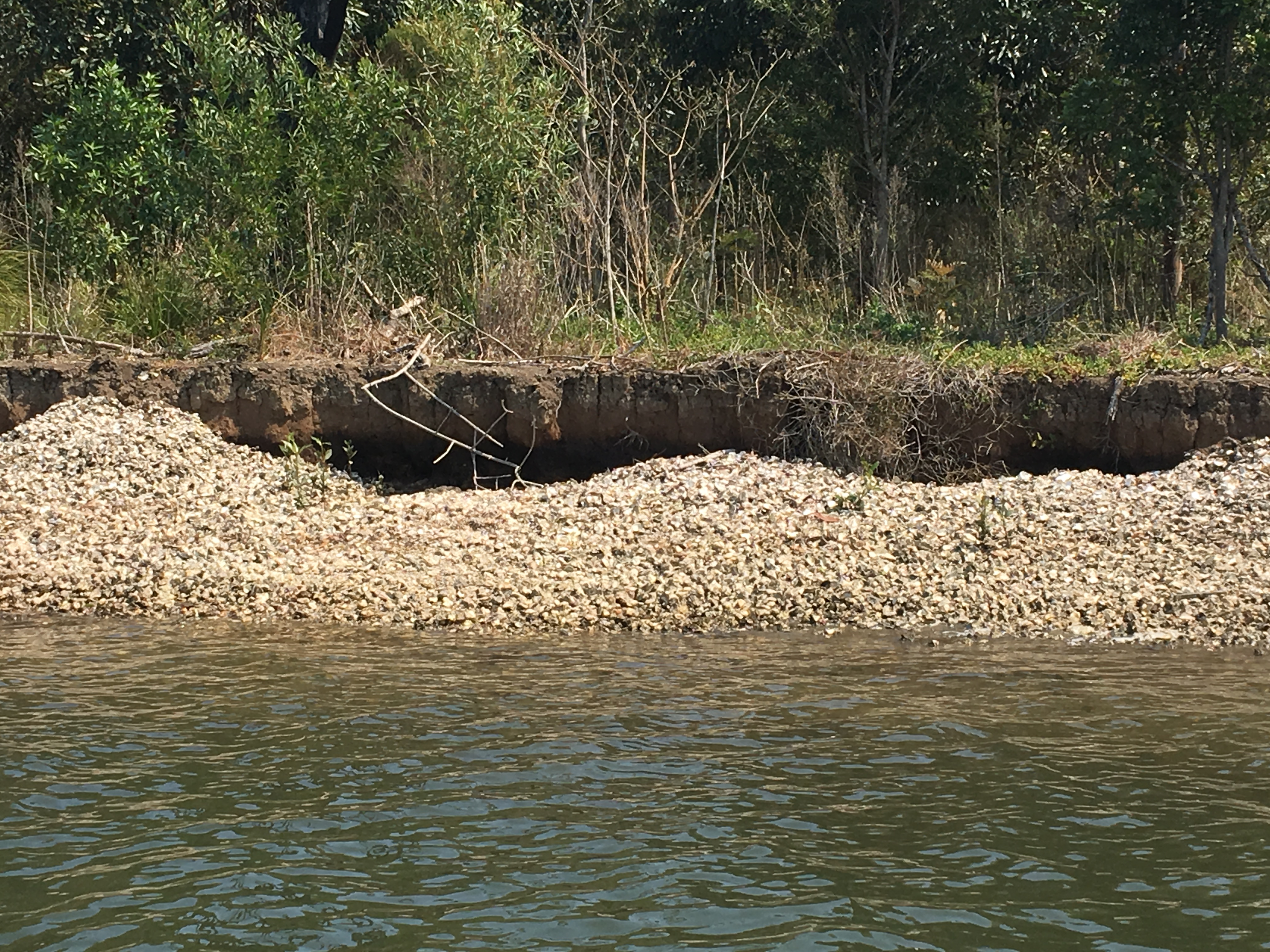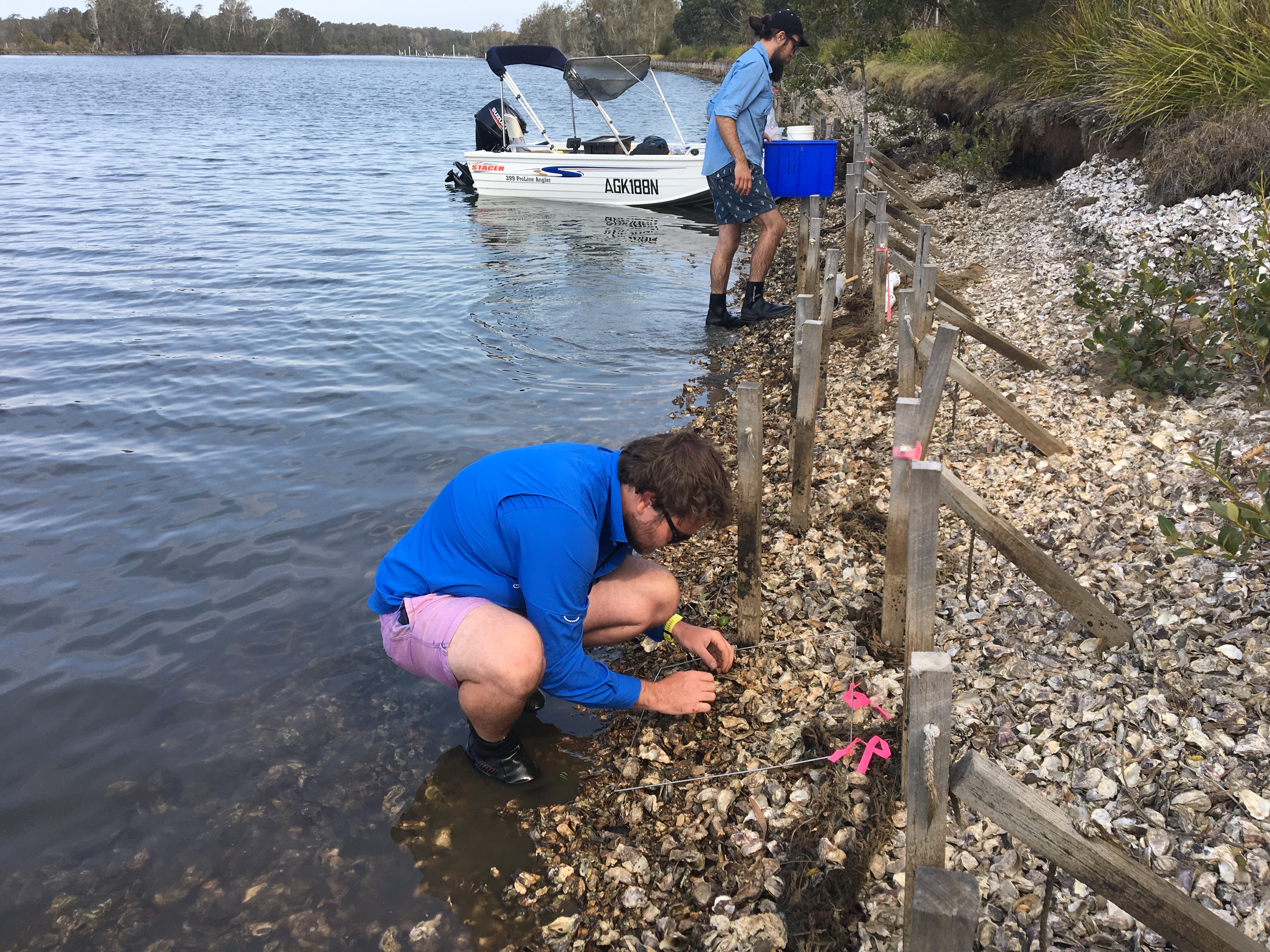Climate Ready Aquaculture
The Climate Ready Aquaculture Incentives Program supports oyster farmers through develop and adopt new management practices that increase their resilience to weather and climate variability. Grants of up to $5,000 are available and the amount applied for must be matched in cash by the applicant. Oyster farmers must have completed or commenced a farm profile with Hunter LLS to be eligible and the program aims to improve both business viability and climate adaptation.
The Climate Ready Aquaculture project is delivered by Hunter LLS, through funding from the Australian Government’s National Landcare Program.
Applications have now closed.
For more information contact:
Brian Hughes
Estuary and Marine Officer
Mobile 0428293021 or Email: brian.hughes@lls.nsw.gov.au
Chloe Baker
Land Services Officer
Mobile: 0432 568 185 or Email: chloe.baker@lls.nsw.gov.au
BACKGROUND
Since 2015, Hunter Local Land Services (LLS) and MidCoast Council have been working with the oyster and fishing industries to understand the changing nature of Wallis Lake and develop practical adaptation responses. Hunter LLS has now delivered the first year of its Climate Ready Aquaculture project funded by the Australian Government's National Landcare program.
Over the next four years Hunter LLS will help oyster farmers plan their adaptation to climate change and then implement in-water changes through small grants. Projects in Wallis Lake, Manning River and Port Stephens estuaries to date have reduced the use of tar-treated timber, reduced waste generation and helped protect seagrass habitats.
Hunter LLS is currently delivering a new targeted project Climate Ready Aquaculture project (since 2018) funded by the Australian Government's National Landcare program.
Through to 2023, Hunter LLS will continue to help oyster farmers plan their adaptation to climate change and then implement in-water changes through small grants. Projects in Wallis Lake, Manning River and Port Stephens estuaries to date have reduced the use of tar-treated timber, reduced waste generation and helped protect seagrass habitats.
Uniquely, the Climate Ready Aquaculture project is helping the oyster industry and fishing industries co-adapt by monitoring how changes to infrastructure affects fish habitat values and by creating new habitat. Both industries have been working with Hunter LLS, MidCoast Council and Taree Indigenous Development and Employment (TIDE) to construct an oyster reef in the Wallamba River to protect the riverbank on Gereeba Island. Oyster reefs have been decimated across the world by destructive harvesting practices, poor water quality, diseases and pests and there are now many projects across the country and the world restoring these ecosystems.
Initial bank protection work at Gereeba Island using coir logs and mangrove planting was only partially successful with most mangroves surviving but the coir logs disintegrating or being washed away. To ensure the young mangroves weren’t washed away the project trialled new ways of placing waste shell from oyster production along the bank to provide wave protection.
Live oysters harvested from oyster leases were also added to encourage and possibly accelerate the creation of a living structure. Slowing erosion of the riverbank will reduce the amount of sediment entering the Wallamba River and improve water quality. Oysters are filter feeders and that filtration also helps improve water quality. Oyster reefs also provide good habitat for a range of fish and other marine life, including species targeted by recreational and commercial fishers such as bream and mullet.
Read more about the benefits of Oyster Reef Restoration.
Site monitoring is being done by Hunter LLS, TIDE and the University of Newcastle and results are promising with live oysters surviving and growing and the structure continuing to protect the young mangroves and the riverbank. Some mangroves were burnt during the bushfires and the site was flooded during February 2020 but both the structure and live oysters have survived. it is hoped that the oysters at Gereeba Island will survive and thrive alongside mangroves with both providing habitat for fish and invertebrates.
LLS and Council will be using these methods at additional sites along the Wallamba River and will be working with the University of the Sunshine Coast and DPI Fisheries to map existing oyster reefs, better understand how fish utilise different estuarine habitats and move between them and prioritise future restoration efforts.
Download and read the Gilby et al., 2022, Investigating fish populations for oyster reef planning- Final report PDF, 2188.92 KB.

View a short highlight video of the Oyster Regeneration Project
View the full video of the Oyster Regeneration Project
About the climate ready aquaculture project
The Climate Ready Aquaculture Project will help oyster and fishing industries adapt to climate change, by optimising farming methods. The project will support oyster farmers in the Wallis, Port Stephens and Manning estuaries, to transition to more sustainable and productive growing methods, reducing waste generation and improving estuarine habitats and fisheries production.
Oyster farmers will be supported to develop individual oyster farm profiles that map and describe oyster infrastructure types and condition. Farm profiles enable oyster farmers to adapt to climate change whilst improving productivity, profitability and sustainability. Assistance for implementing priority actions identified in oyster farm profiles will be provided through small incentive grants.
These core project activities will be enhanced by research and monitoring to provide information on methods that maximise the resilience of oyster growers. The project will also identify opportunities for habitat augmentation to offset any reduced fisheries production as a result of climate change or changing oyster infrastructure and practices.
View a short video about the Climate Ready Aquaculture project.
Oyster research and monitoring program
Hunter Local Land Services is currently working on a number of projects to improve research and monitoring outcomes for the oyster industry in the Hunter region. The Wallis Lake Estuary Processes and Seafood Production Group helps oyster farmers work with commercial fishermen, Council, government and researchers to develop projects that enable both the oyster and fishing industries adapt to the changing nature of the estuary. Through this partnership, a number of water quality data-loggers have been installed in the lake to monitor salinity, temperature and tidal height.
We are continuing to work with MidCoast Council and others to improve estuary and catchment health. Growers may be interested in the recent Waterways Report Card 2020 released by Council.
For more information contact Brian Hughes (0428 293 021 or brian.hughes@lls.nsw.gov.au).
Riverbank restoration
Across the MidCoast area sections of riverbanks are eroding due to the effects of flooding, boat wake and wind waves. To prevent further erosion and restore habitat Hunter LLS are sourcing locally felled timber logs to construct bundles of large woody debris along riverbanks called ‘timber fillets’.
The construction of timber fillets reduces the wave and wind energy providing more protection for establishing mangroves. Mangroves capture and stabilise sediment along riverbanks and the timber fillets help create a low energy intertidal environment that allows for the natural recruitment of mangroves or supplementary planting if required. Oyster reefs can improve water quality, dissipate wave energy and stabilise foreshores.
Both dead and live oyster shells have been placed behind the timber fillets and their survival is being monitored. Studies have shown that the presence of oyster reefs and mangroves contribute to the abundance and diversity of fish species by providing nurseries and refuge from predators.
Download the factsheet PDF, 634.79 KB for more information and find out how you can get involved!
The Climate Ready Aquaculture project will continue until 30 June 2023.
This project has been supported by Hunter Local Land Services through funding from the Australian Government's National Landcare Program

